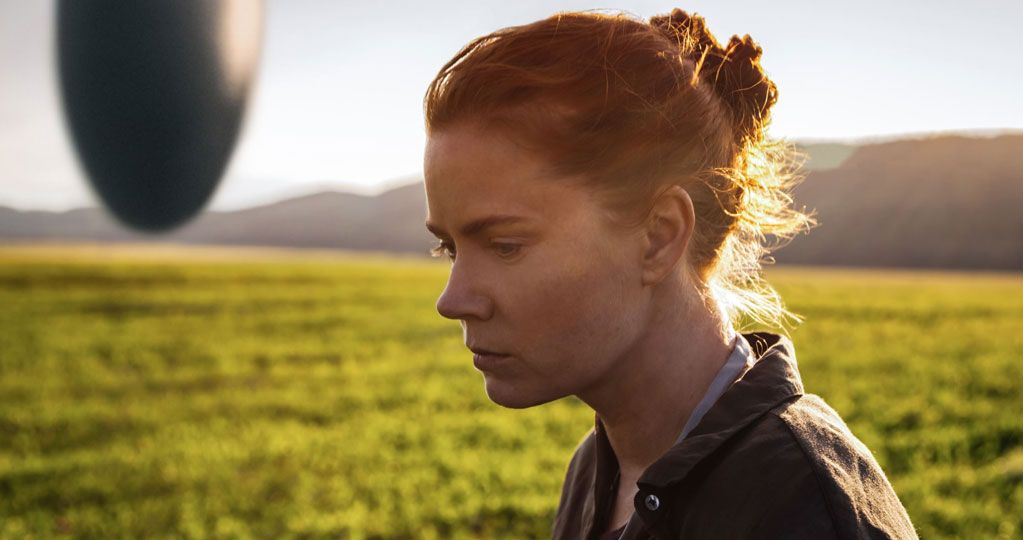There are days in human experience that shatter our understanding of the world, forcing us to reconsider what we thought we knew as we struggle to piece things back together. Denis Villeneuve's elegiac science-fiction drama "Arrival" follows the aftermath of such a day, and the emotional tidal waves it eventually unleashes.
Based on Ted Chiang's short tale "The Story of Your Life," "Arrival" focuses on an alien invasion of Earth. But this is not a spectacle-packed action flick in the vein of "War of the Worlds" and "Independence Day" or even a suspenseful sci-fi thriller like "Gravity" or "Ex Machina." Instead, Villeneuve's follow-up to his lauded crime-drama "Sicario" offers a much subtler and more solemn exploration of this sci-fi subgenre. Focusing on linguistics professor Dr. Louise Banks (Amy Adams), "Arrival" guides us through the American government's earnest but anxious efforts to make sense of an alien invasion that's placed enormous floating vessels above 12 seemingly random spots around the globe, including rural Montana.
Villeneuve's film kicks off with the dizzying reality of these mysterious extraterrestrial's arrival. It was an average day until that moment. Louise strides into her lecture perplexed by the poor attendance. The students seem distracted, checking their phones, until one entreats her to turn the classroom's television to the news. And just like that, with one simple, striking image, the world as we know it is different. The Canadian filmmaker doesn't indulge in melodramatic gnashing of teeth or cries of shock. And this grounds the film in an eerie authenticity. Watching this simple scene -- that admittedly contains no violence -- I was reminded how on 9/11, I sat in a college class, confused when a peer whispered something about a plane crash in Manhattan. As we joined the masses of students who steadily filed out of the campus and onto buses, subways and sidewalks, the quiet was rattling. Horrified and confused, many of us didn't seem to know what to say, and so we stared, scared and silent, awaiting whatever comes next.
How do you make sense of the unimaginable? That is the question playing at the core of Villeneuve's daring drama that refuses to gussy itself up with scares or outlandish stunts. Nobly pressing on to communicate with these cryptic creatures, Louise teams with a brash scientist (Jeremy Renner), racing to decode the extraterrestrial's language and thereby their purpose on Earth. Meanwhile, China teeters on the brink of igniting intergalactic war. All the while, Villeneuve's cast--which boasts solid supporting turns by Forest Whitaker and Michael Stuhlbarg--strives for tension and poignance through strained discussions about the importance of language to perspective.
It's an interesting concept, and a remarkably restrained film, rich with foreboding. I admire Villeneuve ambition and appreciate the humane message that beats at the heart to his story. But as the plot clunks from one tame close encounter to another, I became increasingly, unsalvageably bored. This is decidedly not my kind of sci-fi.
The understated performances completely make sense within the world of a military installment striving for a peaceful resolution. Carrying an incredible yet casual gravitas, Adams is intriguing as this under-pressure civilian. But with no action, weak suspense and little mirth, the tone steadily becomes a relentless one-note dirge. Though seemingly sophisticated, "Arrival" squanders its strong start with a plodding pace that trudges through a maudlin mood toward a finale that indulges in one of sci-fi's most infuriating deus ex machina tropes. Though initially fascinating, Villeneuve's indulgence in mood and melancholy mount to a conclusion that wastes its compelling premise and wallows in infuriatingly all-consuming sentimentality.
"Arrival" is in theaters nowth.

